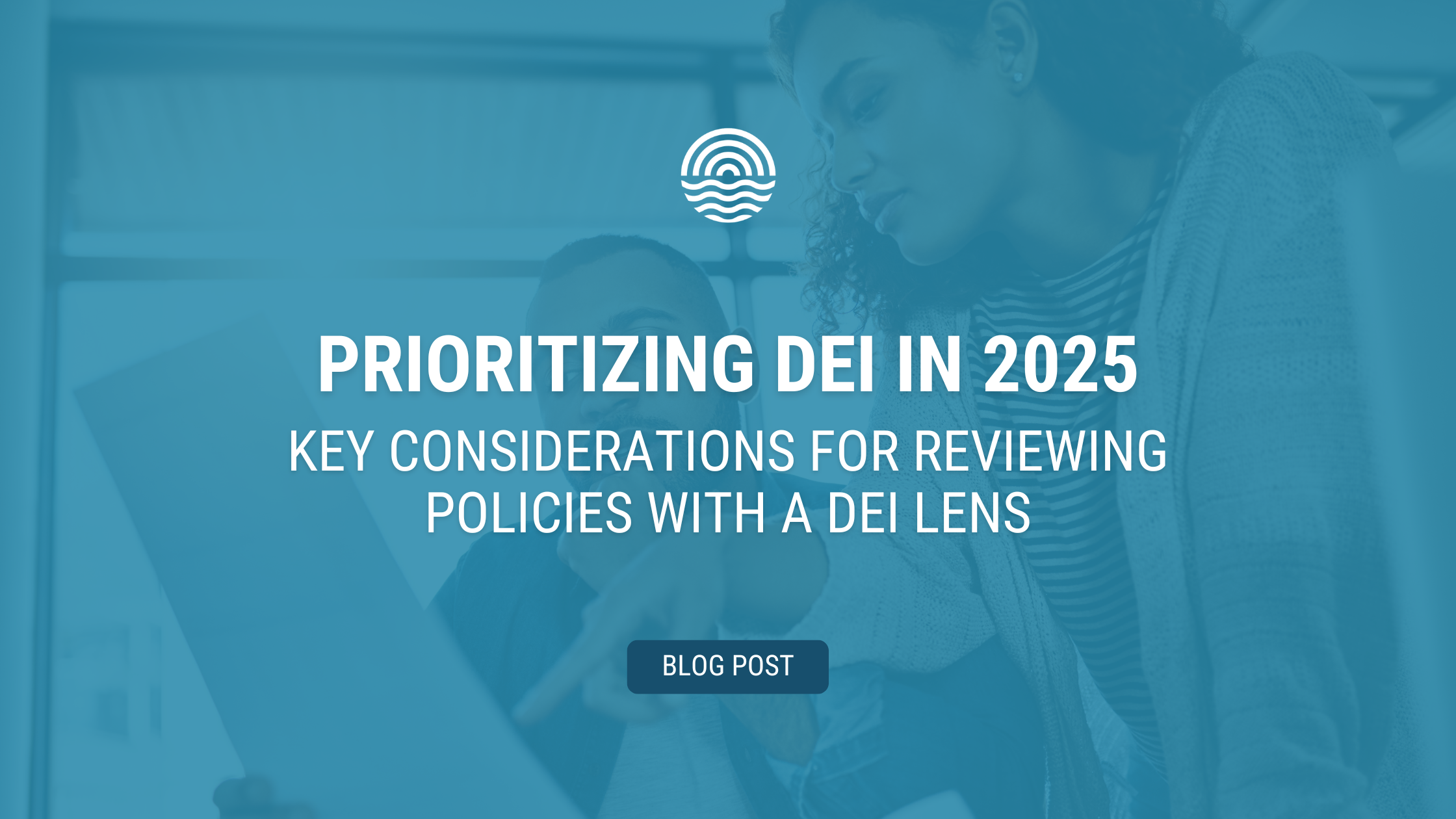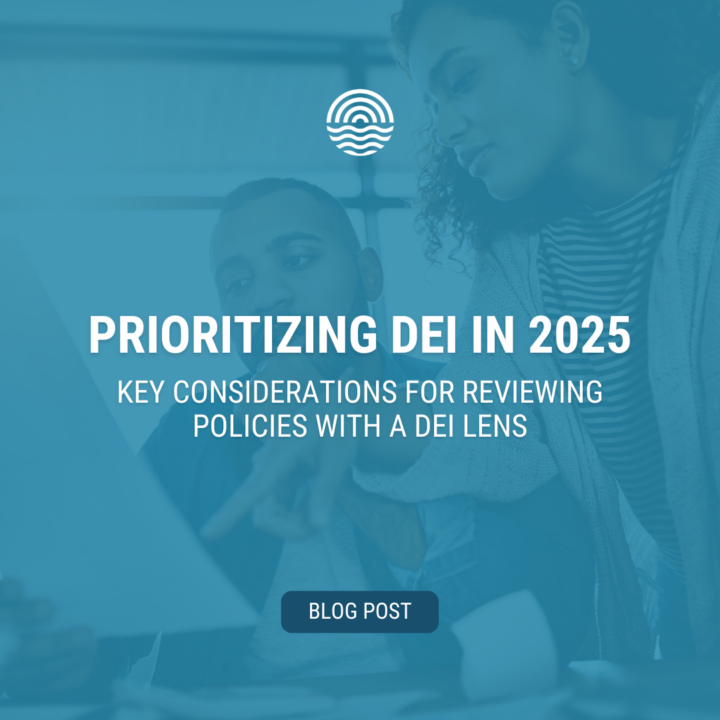
BLOG POST
Prioritizing DEI in 2025: Key Considerations for Reviewing Policies with a DEI Lens
As we look towards the new year, it’s the perfect time to prioritize strategic initiatives that will shape the future of your organization!
This time of year presents an opportunity to prioritize strategic initiatives, such as a thorough review of your organization’s policies and procedures through a DEI lens.
Why is a DEI Review Important?
A comprehensive DEI review is essential for several key reasons, including:
- Attracting and Retaining Top Talent: A strong DEI commitment can help attract and retain top talent from diverse backgrounds. By creating an inclusive workplace culture, you can foster innovation, creativity, and productivity.
- Enhancing Employee Morale and Engagement: When employees feel valued, respected, and included, they are more likely to be engaged and motivated. A DEI review can help identify areas where you can improve employee morale and engagement.
- Building a Strong Employer Brand: A strong DEI reputation can enhance your employer brand and attract top talent. By demonstrating your commitment to diversity, equity, and inclusion, you can position your organization as a leader in the industry.
- Mitigating Risk: A lack of diversity and inclusion can lead to legal risks, such as discrimination lawsuits. By proactively addressing DEI issues, you can mitigate these risks and protect your organization.
Key Areas to Focus Your DEI Review On
Ready to take your business to the next level? A comprehensive review of your current policies and practices can help identify key areas for DEI improvement.
Here are some ideas and questions to ask your team to help get your gears turning:
1. Recruitment and Hiring
- Are our recruitment practices inclusive and equitable? Do we actively seek diverse candidates and use unbiased hiring criteria?
- Do our job descriptions and advertisements reflect inclusive language and avoid bias? Are they accessible to people with disabilities?
- Is our interview process fair and equitable? Do we use standardized interview questions and avoid discriminatory practices?
- Do we have diversity and inclusion training for hiring managers and recruiters? Are they equipped to identify and address bias?
2. Performance Management
- Are our performance metrics fair and unbiased? Do they measure performance objectively and avoid subjective biases?
- Do our performance review processes promote open and honest feedback? Are they inclusive and respectful of all employees?
- Do we have mentorship and sponsorship programs to support diverse employees? Are these programs effective in helping diverse employees advance their careers?
- Are our performance management systems transparent and equitable? Do employees understand how they are evaluated and how they can improve?
3. Compensation and Benefits
- Are our compensation practices fair and equitable? Do we conduct regular pay equity audits to ensure equal pay for equal work?
- Do our benefits packages meet the diverse needs of our employees? Do they include options for flexible work arrangements, family leave, and other benefits that support work-life balance?
- Do we have transparent and equitable promotion processes? Are promotions based on merit and performance, regardless of race, gender, or other protected characteristics?
4. Training and Development
- Does our training and development program address the diverse needs of our employees? Do we offer training on topics such as unconscious bias, cultural competence, and inclusive leadership?
- Are our training programs accessible to all employees? Do we offer accommodations for employees with disabilities and language barriers?
- Do we have a diversity and inclusion training program for all employees? Does this training promote a culture of respect, inclusion, and equity?
5. Employee Relations
- Do we have effective channels for employees to voice their concerns and feedback? Are these channels accessible and confidential?
- Do we have a strong employee resource group (ERG) program? Do ERGs provide a supportive community for diverse employees?
- Do we have a fair and equitable grievance process? Is this process accessible to all employees and free from retaliation?
- Do we have a positive and inclusive workplace culture? Do employees feel valued, respected, and empowered?
Closing Thoughts
As we embark on a new year, let’s seize the opportunity to prioritize Diversity, Equity, and Inclusion (DEI) in our waterfront workplaces. A comprehensive DEI review is a strategic imperative that can significantly impact your organization’s success. By focusing on key areas like recruitment, performance management, compensation, training, and employee relations, you can cultivate a more inclusive, equitable, and thriving workplace.
Remember, DEI is an ongoing journey, not a destination! Continuously evaluating your practices and implementing necessary changes can help you create a lasting impact.
Looking for support conducting a DEI audit in your workplace?


